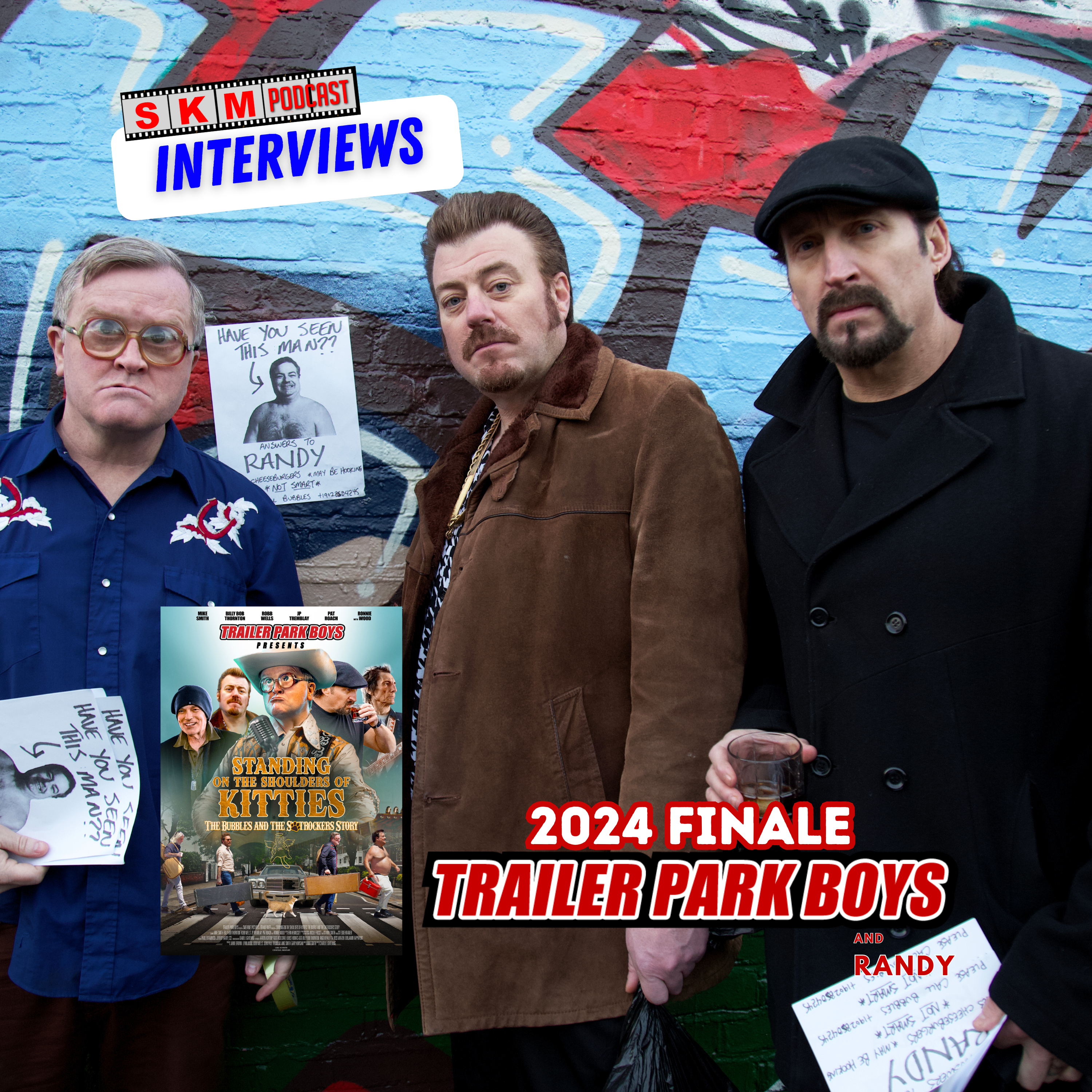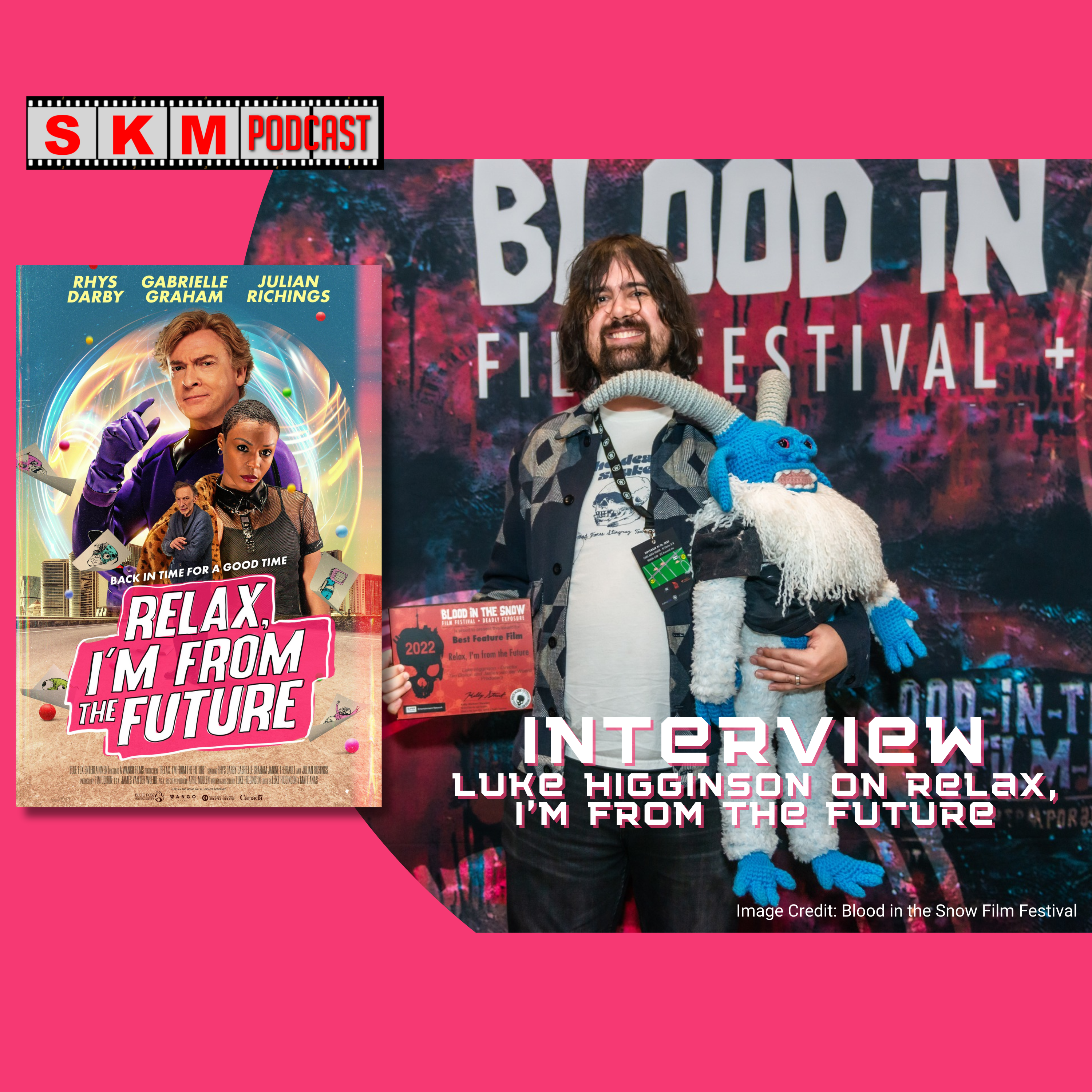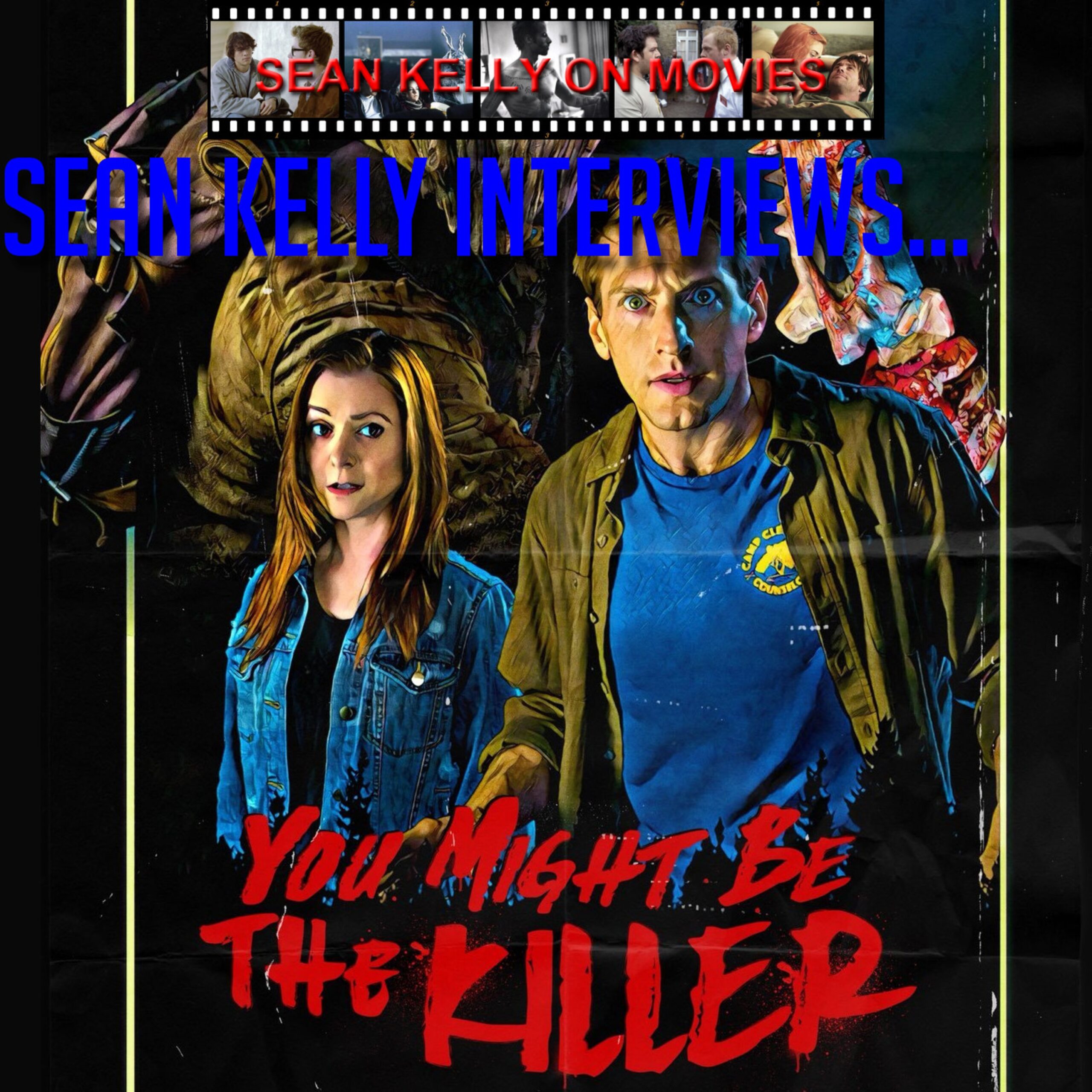Episode Transcript
[00:00:10] Speaker A: Sean Kelly interviews Anne Marie Fleming and Kira Zhang on Can I Get a Witness? Like. And subscribe for more content like this. So I guess I'll start by what was the inspiration behind Can I Get a Witness?
[00:00:27] Speaker B: Well, you know, I used to live in the West End in Vancouver, and back in 2006, there's a huge windstorm. It blew down 10,000 trees, and we started to get the king tides that were eroding the seawall every year and you couldn't walk around. And then there were, you know, like, earthquakes. I became like a volunteer, actually for Vancouver Volunteer Corps about, like, earthquake preparedness. I just started having general clothes, climate anxiety about everything. And the same time, Canada was thinking of moving cpp, like old age Pension, like, up, like move the years up, like from 65 to 67. And I mean, I was not. I was not 50 then. And I thought this was all kind of, you know, funny. So I thought that. This is something that I would like to comment on. I'd like to comment on our climate anxiety, climate change and. But also on our aging population. And I took as my inspiration Jonathan Swift, who's like a Irish English novelist, essayist, philosopher, activist. He wrote a thing called A Modest Proposal about the potato famine in Ireland, where he suggested that the Irish eat their babies, it could help with lowering their population and also give them some excellent protein. And this was obviously a very harsh farce. A lot of people took him seriously. A lot of people got, got very angry. But there was discussion and things did change. So that was my inspiration. And I thought that at the time, 50 was ridiculous. It's like everybody wants things to change. Everybody wants things to be better, but it is going to take some sacrifice. And what are we willing to do if we're not willing to go there? Surely there's other things that we could do. It is going to take sacrifice. And what happened between then and now. Covid, you know where this is a kitchen table conversation. And also you can see how quickly things can change and how governments can all do the same thing at the same time. How we are all experiencing things at the same time. Now climate change is on the front page. Like, everybody's experiencing it, like craziness all the time. We don't agree about why or how, but we can't disagree that things are changing.
And so, yeah, and now there's maid, you know, like, and countries are having this conversation all over the world. Is it okay to make the decision to, you know, leave on your own terms or not?
And people are talking more about that. And so this is this whole film that started off as a. As more farcical, became just a lot more tender and touching, really what we've been going through and we're going through now and will continue to. So it, it became a lot softer and I think it became like kind of a celebration, kind of like a love letter in some ways. You know, like, like, it's like how beautiful, how beautiful this world is, you know, and how precious our lives are.
[00:03:33] Speaker A: Yeah, well, I think, I think the premise of this film is actually pretty popular right now because last year I also saw the release of Caitlin Cronenberg's Humane, which takes a more cynical approach to that premise. So for. So for Kira, how would you describe your character's arc in film?
[00:03:52] Speaker C: Yeah, I think the way that she handles this intense world that she's living in is really true. To pluck a 16, 17 year old out of right now and it's this immense grief that you don't really understand yet. And so demonstrating that both with interpersonal relationships with people and then also your relationship with the climate and explaining or experiencing that grief from both ends, I think was really fascinating to dive into as the character who has all these feelings and doesn't know how to process them and is looking for someone to be mad at, but doesn't really know who or what she's going through and learning all these new things at the same time and questioning. It's definitely something that I can relate to. Thinking back on my teen years of understanding nothing but wanting to understand everything at the same time.
[00:04:54] Speaker B: Yeah, well, I came up with the idea of having teenagers be the leads and shooting up in Powell river because I, I was like a guest, a guest artist at the digital film school up there, where it was like high school. Kids were learning how to make films and, and also was teaching animation. And I was just so, like, Powell river just was the world that I was thinking of. I went, oh, this is, this is already like a walk back a bit. A walk back a bit of like the speed of modern life. And, and these kids were so amazing, so talented, dealing with huge issues, you know, like personal, global, everything. But they're just kids still. And so I understand that between 17 and 18, like your frontal cortexes, like, are touching. I don't know if you've heard this or if this is true, but it sounds good. So they don't touch until you're 18 for some people probably a lot older. And so you have, you have amazing capacity, but you also don't Necessarily know how to, you know, join, connect all the dots. And so I was really interested in this, this time, this time of life.
[00:06:13] Speaker A: Well, I thought like an interesting scene in the film was the like group therapy session and you could tell like, how little these people know about our current world and like how, I don't know, like Zoolander is like a cultural relic.
[00:06:29] Speaker B: Well, you know, that. That is supposed to be a scene. I don't know how I'd like to hear your version of this, Kira, but it's like, what if you could say things like, oh my God, there was a time when people were poorer than other people and for that not to be imaginable, like, oh my God, how awful. Or you know, like, like, I know it sounds so silly in some ways, but. But imagine, you know, like, imagine a world where these kinds of, you know, all the problems are gone and we can't imagine how they were ever there. Like, who would have done that?
[00:07:10] Speaker C: That's funny. Actually talking about that scene, I remember having a conversation with a few of the other actors that day and thinking about it was kind of inspiring to think that this world feel so far away of. Of. Of like inequality and everything. So it was definitely something that. Okay, you know, watching it in current time feels, oh, these kids don't understand anything that came before them. But then also feeling this, oh, I hope, I hope that could happen, you.
[00:07:44] Speaker B: Know, and they're far enough away from 50 not to feel it yet.
[00:07:47] Speaker C: Yeah, exactly.
[00:07:48] Speaker B: Like they're far enough away from 21.
[00:07:53] Speaker A: Okay, well, I have to ask about the casting of Sandra. Oh, in the film. We worked together on window horses before. And the mother daughter relationship she shares with Kira's character.
[00:08:06] Speaker B: Oh, she. Well, it's interesting. Sandra would describe it this way, that she's kind of like an ideal version of a mother. Like, she's so kind, she's so sensitive, she's so giving. She's walking the walk, you know, and everything is for her daughter. And actually, you know, obviously not everything we shot got in the film. There's, there's even. It's like. But she's. The things that she says are so kind, you know. So Sandra was interested in this film because of her own. Her own meditative practice. And she's very interested in. About acceptance of death. And it's interesting too, because neither Sandra or I are mothers. You know, we don't have children, but we're. I guess we're mother figures, you know, like, and. And what I wanted to show in this film is that we all have to be mother figures, right? We have to bring up everybody. We have to treat everybody the same way regardless.
But. But yeah, I didn't, you know, when I first thought about this film, Ellie does not have to be Kia's biological mother. But it was so interesting. People want that to be true, right? They want it. And of course, Sandra being Asian and Kira being, you know, part Asian, that people are going to see that people want. They want to see that bond.
[00:09:32] Speaker A: Kira.
[00:09:33] Speaker C: Well, I think it was such a. It was shocking also to read the script and then find out that Henri wasn't a mother because it was so.
It felt like such a perfect mother daughter relationship. And. And I think my character, she can be really rude and mean to her mom, but like you said, she. She kind of was this perfect mother who just understood all that and understood why she was feeling that way, even when Kia didn't understand why she was acting out that way to her mom. So I think, yeah, and then just having Sandra, who's an incredible person, just understand that fully and, and to, to know what it's like to be, like you said, a mother figure in that sense, I think was really, really telling.
[00:10:31] Speaker A: I have to ask about the incorporation of animation in the film. So was that always the intention?
[00:10:40] Speaker B: Well, my background is in animation as well, so it's a way of storytelling for me that is, you know, I don't. It's just.
It's an option. It's a tool. And Kia is a witness. She draws end of life ceremonies in a world where you have to repress your emotions quite a bit to be able to go through with what you need to do. And so I wanted the drawings to show her emotional world, all the things that she couldn't express. And yeah, originally there was going to be a lot more animation in the film. And then we shot it and it was such an emotional experience for the actors and I think for the audience that we just needed some touches of the animation to remind you. To remind you that this is a fable, this is not the real world, but to remind you that there are other stories going on than the ones that are just on the surface.
[00:11:35] Speaker A: I do admit that this film kind of affected me a lot because, for starters, I'm in my 40s, so in this world I would have less than a decade to live. So. But I, like, noticed even though you try to have like an optimistic output, there are certain, like, dark undertones to the story, like that one scene I don't want to spoil. But you, you know, and just how Was the challenge trying to strike that balance.
[00:12:01] Speaker B: Oh, death, death, death. It's hard to talk about death, death, death without being a little dark, dark, dark.
But. But death is something that we all have to come to terms with. Like, it's interesting in Western culture anyway. We just don't ever want to deal with it, you know, and it happens. It happens far away. But we are all dealing with it all the time. I mean, it's sort of like our purpose here. That's, like. That's what we all do. That's what we all share. And none of us are, like, really that down with it. And. But. But I would say that even that that scene that you are referring to, that if you listen to the sound, there is a ricochet.
[00:12:45] Speaker A: Oh, for character. So your character is pretty much struggling with pretty much seeing death for the first time. So how would you describe your arc throughout the film?
[00:12:56] Speaker C: Yeah, I think. I mean, she starts off not really fully understanding what she's going into. You know, she's been told these stories and kind of understood that this is just the world that she's been brought into. But not having experienced that firsthand yet, you can't really expect anything. And so that first time that she witnesses, I think really shifts her perspective, and it makes her doubt for the first time. And I think, well, maybe not for the first time, but definitely experience that fully. And I think that really shifts how she feels about the whole process and raises all these questions. Whereas, you know, in the beginning, maybe she just thought this was her duty. This is what she's supposed to do. This is what everyone before her has done. And then actually seeing it firsthand, I think, is really. When is this right? Is this what we should be doing? Is this the only path those questions start getting raised? For sure.
[00:13:58] Speaker A: Well, at least she gets to enjoy duck soup.
[00:14:01] Speaker B: Yeah, buddy. That moment. Duck soup, where the projector starts and she looks at the projector.
Yeah. And also this is video. Right. So these are props from the film. There's foxgloves. Because also, this is like, an insider thing, is that digitalis purpura is the. The drug of choice. It's. Digitalis is a heart medication.
And also it's a. It's a toxin. There's no part of this plant that's not toxic.
[00:14:36] Speaker A: It's an interesting way of, like, doing those types of ceremonies because you wouldn't expect, like, a box of, like, a purple gas coming out.
[00:14:44] Speaker B: Yeah, I know. It's like, how do you. How do you show the. Yeah, how do you show the agent of. Of death. And it's it's beautiful. And that's why we showed it, like, you know, because it's the cycle of life. This. You know, bees. Bees can pollinate this, and. And dogs can vomit.
[00:15:03] Speaker A: Okay, that's a good note to end on.
[00:15:07] Speaker B: Okay. Is it? Is that our note?
[00:15:09] Speaker A: Yeah, that's our. Well, that's our time.
[00:15:11] Speaker B: Thank you. Thank you so much for thank you so much for profiling our film.
[00:15:15] Speaker A: Sean Kelly on Movies Interviews is part of the SK on Movies podcast network. You can access links to all our shows by going to Skonmovies podcast, ca, or search us on Spotify, Apple Podcasts, YouTube, or where else you listen to your podcasts. This has been a production of Sean Kelly on Movies.


